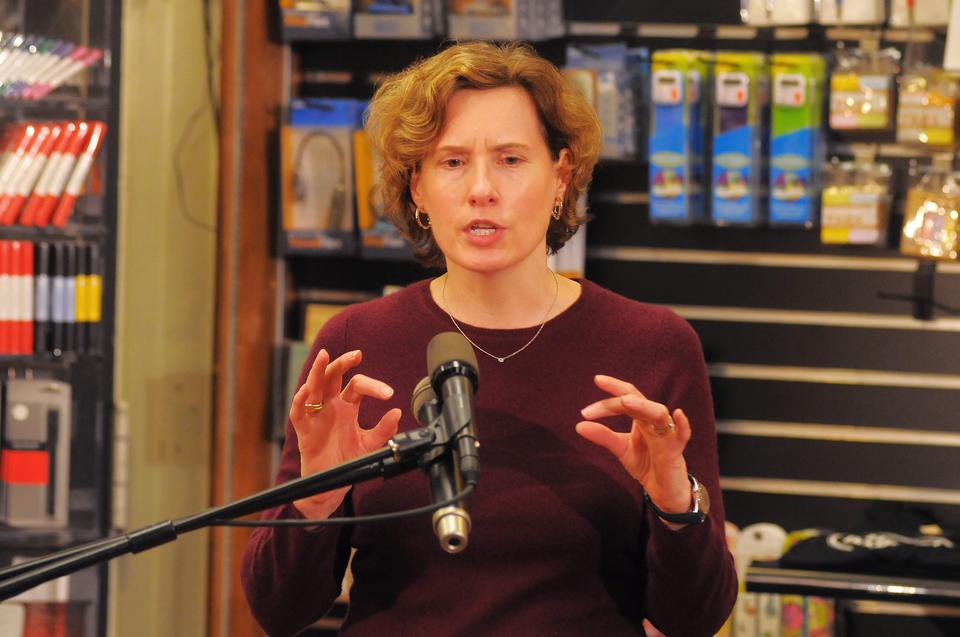
News
Summers Will Not Finish Semester of Teaching as Harvard Investigates Epstein Ties

News
Harvard College Students Report Favoring Divestment from Israel in HUA Survey

News
‘He Should Resign’: Harvard Undergrads Take Hard Line Against Summers Over Epstein Scandal

News
Harvard To Launch New Investigation Into Epstein’s Ties to Summers, Other University Affiliates

News
Harvard Students To Vote on Divestment From Israel in Inaugural HUA Election Survey
History Professor Tracks Explorers

History professor Joyce E. Chaplin sought to capture half a millennium of human efforts to traverse the globe in the pages of one book, and Thursday evening, she discussed the fruits of her labors in a talk at the Harvard Book Store.
Chaplin said the inspiration for her book, called "Round About the Earth: Circumnavigation from Magellan to Orbit," came from a research project in the middle of the ocean, during which her only form of entertainment was a French edition of Jules Verne’s classic, "Around the World in Eighty Days."
Launching into a brief summation of circumnavigation as an act spanning 500 years of history, Chaplin described it not as a study of geography, but as a "geodrama."
"While geography engages the human eye, hand, and mind, geodrama requires all of the human being—the entire body in relation to Gaia, or the Earth," Chaplin said.
Chaplin’s book divides this drama into three distinct acts. The first spans from 1519—the year of Ferdinand Magellan’s departure for his around-the-world expedition—to 1779, the year of James Cook’s death in Hawaii. It was a time when mariners traversed the earth in fear.
During the second act, from the 1780s to the 1920s, travelers gained confidence that they could survive circumnavigation. Not only did they view the journey as plausible, but it also became a popular pastime.
The third and final act, from the 1920s to the present, has given rise to concerns about circumnavigation’s impact on the environment. “Confidence has given way to doubt. There is a growing sense that the planet is beginning to bite back or shrug us off,” said Chaplin.
After a ten minute reading and an extensive question and answer session, some audience members voiced strong reactions. "I loved the way she links [circumnavigation] to power structures and empires. I just think it’s so interesting. A great way to intersect so many periods of history," said Lisa Ford, a visiting academic from the University of New South Wales in Australia.
Ultimately, Chaplin emphasized the enormously transformative nature of circumnavigation on humanity. "Having a sense of the individual human in physical relation to the entire planet," said Chaplin, "people might have thought about that metaphorically, but to make it real has hugely impacted human thought."
Want to keep up with breaking news? Subscribe to our email newsletter.
